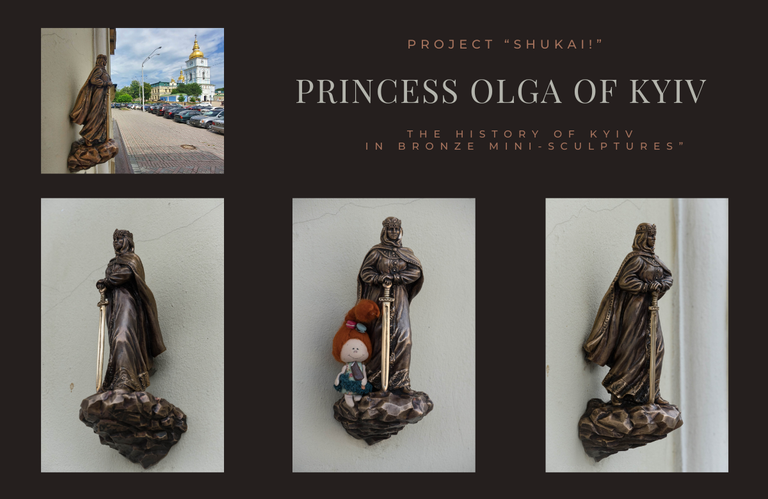
This story is about one of the brightest figures of Rus', a strong, wise and bright ruler. She lived in the X century and was the first woman to rule in Rus'. After her, no woman came to power neither in Rus' nor in Ukraine.
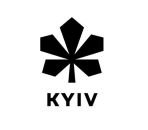
Kyiv celebrated The Day of City a few days ago, it is always on the last Sunday of May, i.e. on May 26th this year. This is a city of strong people, and it finds ways to celebrate even during war.
True Kyivans of all times don't like to walk downtown during any celebrations (at least they don't confess). They used to say that the city center is for tourists. I am not of that kind. I wasn't born here and never pretended to be local, but I don't much care about all these customs and superstitions. Besides, The Day of Kyiv was a good reason to persuade myself to leave the house and go for a longer walk.
Another good reason for Sonia and I was to search for another mini sculpture of the "Shukai!" series for my blog. As you know, each of them has a story from Kyiv's life behind it.😉

I opened the website to find out which one fits our route, and Sonia spotted a new mini sculpture! The picture and the article were added to the site of the project but weren't mentioned on the Wiki page yet because the mini sculpture was just opened, especially to Kyiv Day. And we will be among the first who see it!
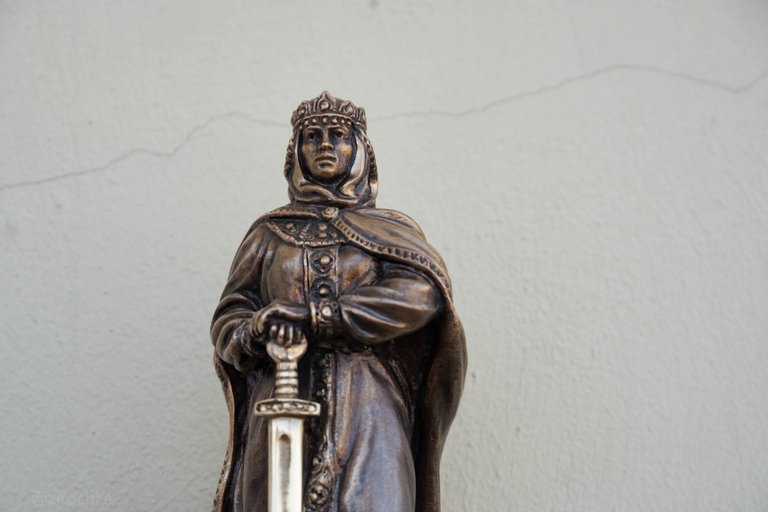
Little Sonia had no idea who is this ancient woman but she was so excited when I read about Princess Olga's sword that was hidden for more than a hundred years and could be seen now. Oh, she was very excited! She loves mysteries and legends, and must confess I'm very much the same.
While we were riding the subway, I briefly told Sonia everything I knew.
But before, I ask you - do you know who is Princess Olga or Knyahynya Olga?❓
! [Short answer] Olga was the wife of Igor Rurikovych, the actual founder of the princely dynasty of the Rurikovichs of Rus'.
The new ruler of Rus'
In those days, rulers collected tribute from the lands they owned. The Drevlians were a Slavic tribe that inhabited rich lands. They paid a lot of tribute, but Igor's excessive greed resulted in his death.
Usually, the voivode (governor) of the prince collected tribute from Drevlian - fur, honey, wax. In addition, local residents had to harass tribute collectors all winter until spring. It was a good income for him and his army. Learning about this, Igor decided to increase the tribute and collect it personally. In November 944, he and his army went to the land of Drevlian and took the tribute by force.
On the way home, Igor sent the army with a tribute to Kyiv, and he decided to return and collect more. Having learned about this, the Drevlians set up an ambush and brutally killed Prince Igor.
The Primary Chronicle of Rus' has a detailed description of Olga's revenge for her husband's death. In the times of paganism, revenge was sacred for the ancient Slavs. It was believed that the more brutal the revenge, the greater the glory of the avenger.
Olga took revenge on the Drevlians who killed her husband 4 times, and the description shows that she was cunning and ruthless. Perhaps this was the law of survival. Anyway, her son was only 3 years old, so she became a ruler in the capacity of regent, and Igor's army recognized her as their legal ruler and served her. The king is dead, long live the king!
Peace and baptism
After suppressing the discontent of the Drevlians, Princess Olga ruled without any wars for about 20 years. At that time, this was a record for any old ruler of Rus'.
Contemporaries called her the wisest among men. She took into account the mistakes of her husband and made reforms. She separated the state and personal treasury, arranged and reduced the tribute and made the "taxes" clear.
Olga was the first in Rus' to convert to Christianity. Her son did not share his mother's intentions and views and did not become a Christian. But Olga had a strong influence on her grandson, the future Prince Volodymyr the Great, known as the one who baptized Rus.
A legend and a little-known fact
There is a legend about Princess Olga of Kyiv and the Emperor of Byzantium Constantine VII Porphyrogenitus.
Olga arrived in Constantinople to be baptized. When the emperor saw her beauty, he offered to marry her. Olga was against it, but she could not openly refuse the emperor. Therefore, she said that before marriage she should convert to Christianity and wants Emperor Constantine himself to become her godfather. After the baptism, he again spoke about marriage, but Olga asked in response: "Can a daughter marry her father?". Constantine realized he had been tricked.
This legend is quite doubtful. But there is one fact that few people know. The images of Olga and her grandson Volodymyr are in Saint Peter's Cathedral in the Vatican. The mosaic images made by Vatican masters at the expense of the Ukrainian community were installed in 1988 on the occasion of the 1000th anniversary of the Baptism of Kyivan Rus and consecrated personally by Saint Pope John Paul II.
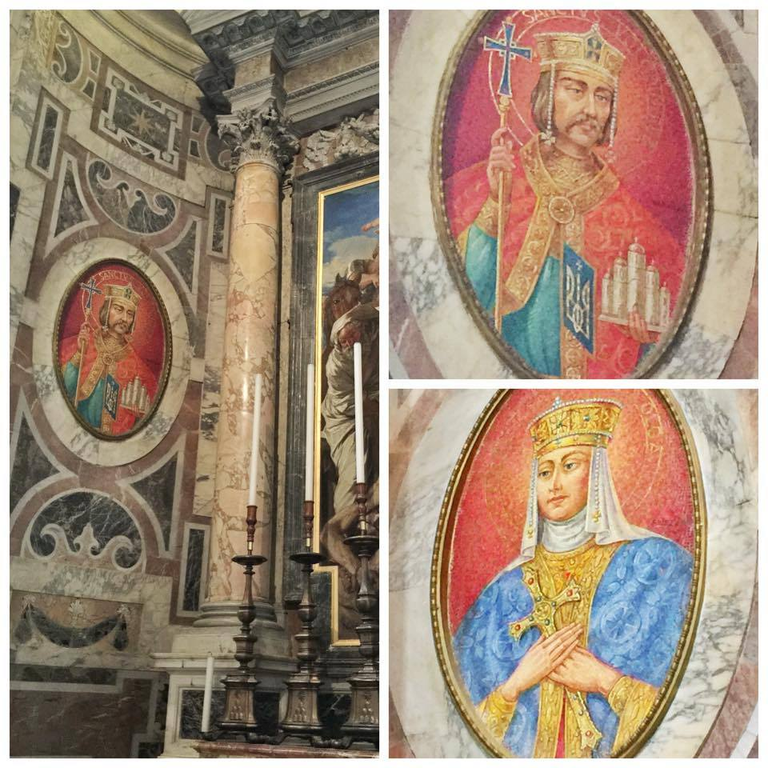
The image of Volodymyr is decorated with a golden trident on a blue background, and in his hand he holds the Sophia Cathedral, built in 1037 (100 years older than Notre Dame). At that time, Ukraine was not yet a sovereign state and the trident was not its state emblem.
Unfortunately, it is impossible to see these images, because they are located in the chapel of St. Erasmus behind the statue of Saint. Peter. This chapel is reserved for confessions and is closed to tourists.
The first monument and the missing sword
In 1911, a monument to Princess Olga was erected on the square near St. Michael's Cathedral in Kyiv. According to the plan, it was the first monument in the series of the "Historical Path" project. It was very similar to the alley of eminent figures in the Tiergarten Park in Berlin. Unfortunately, the plans turned out to be disproportionate to the capabilities. Due to a lack of funds, marble was replaced with concrete and only one monument was erected.
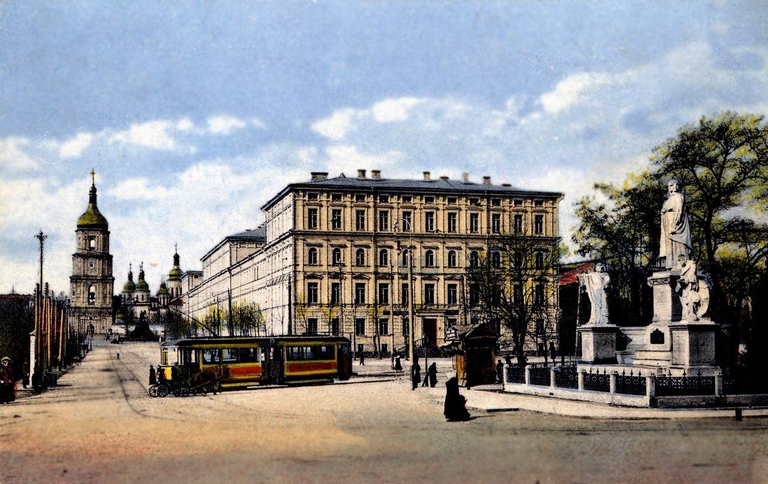
In the first version, Olga appeared as a determined ruler with a sword in her hand. However, it confused the Metropolitan of Kyiv and the author was ordered to remove the sword and replace it with a cross.
However, the sculptor found a way not to remove the sword. In his memories, he alludes that he hid the sword under Olga's cloak, as evidenced by the hand that tightly grips it. For this audacity, he was not invited to the opening of the monument.
The Soviet authorities destroyed the monument for ideological reasons. It was broken into pieces and buried here in the square. In years, it was recreated from marble based on archival sketches in 1994 after the declaration of independence of Ukraine. All fragments of the authentic monument except the head were found during reconstructions of Mykhailivska Square. They can be seen nearby, near the museum of its author, the sculptor Ivan Kavaleridze.
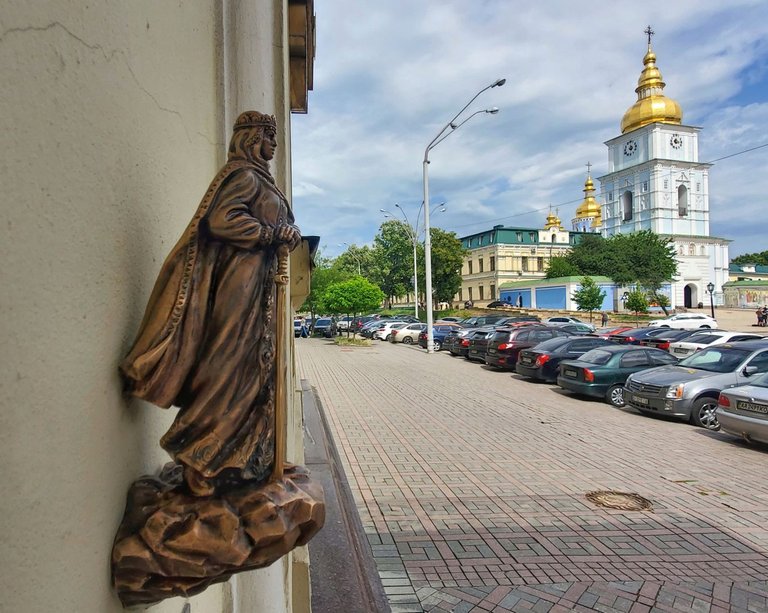
The mini-sculpture returns the sword to Olga
As you can see, the mini sculpture depicts Olga with a sword, according to the original plan. It is installed on the facade of the building behind the big monument. Since the beginning of the full-scale war, our monuments were protected from damage and shelling, but hidden in fact. Olga as a brave woman is not hidden, she wears body armor.
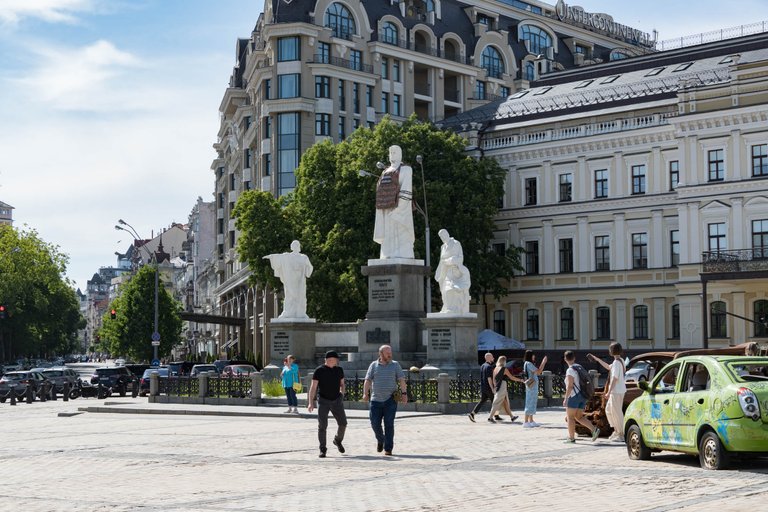
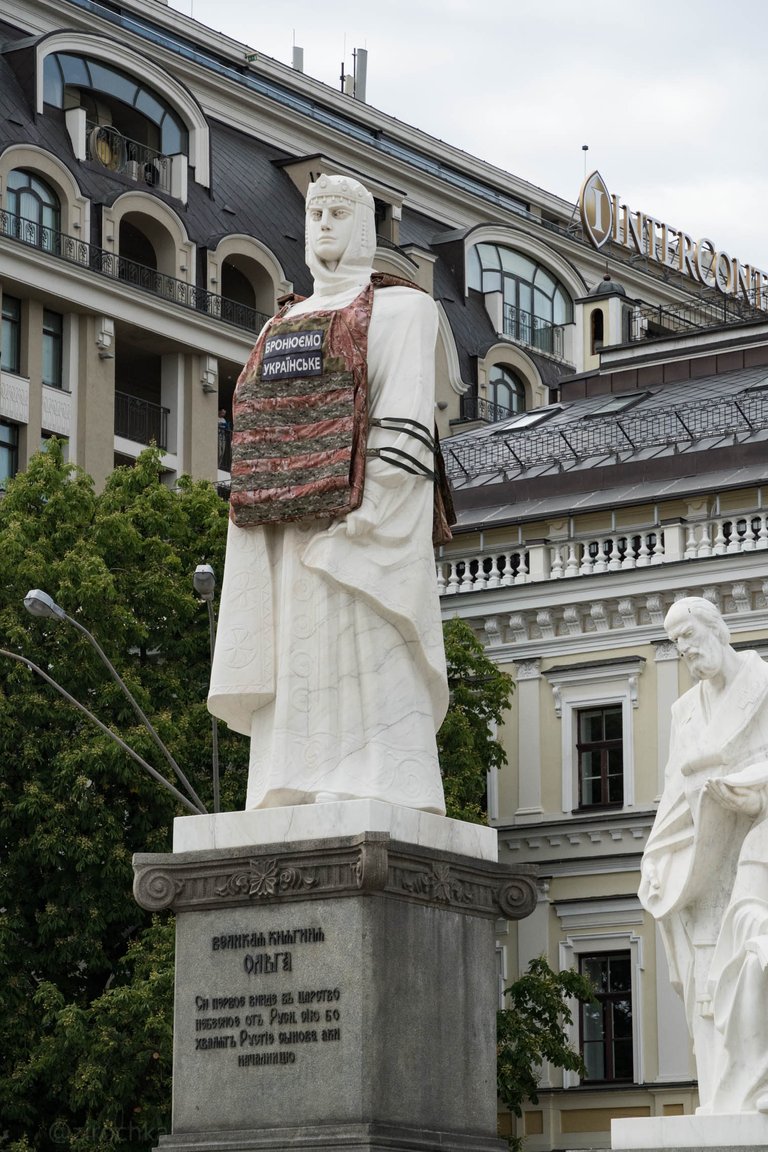
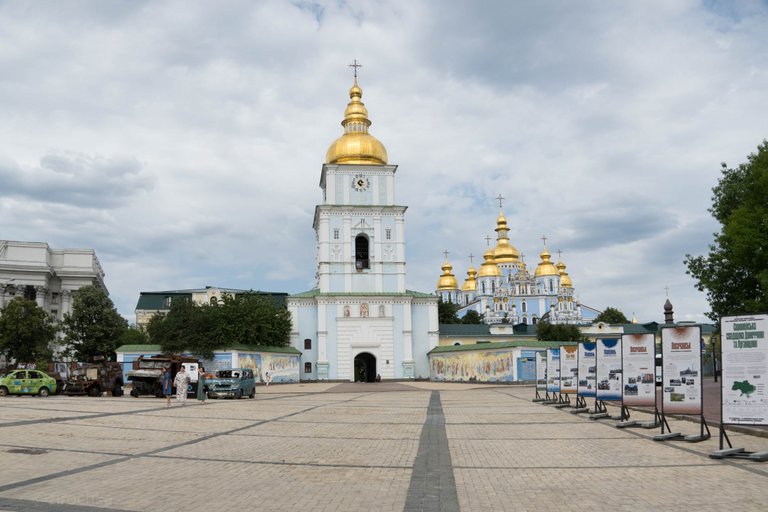
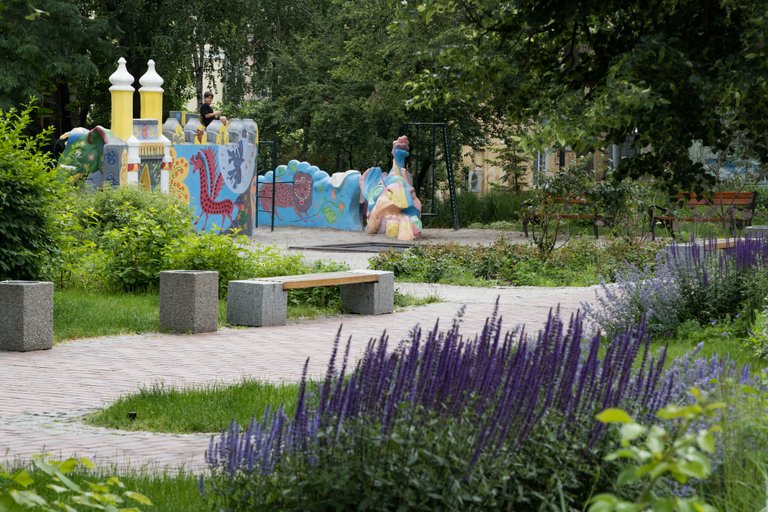
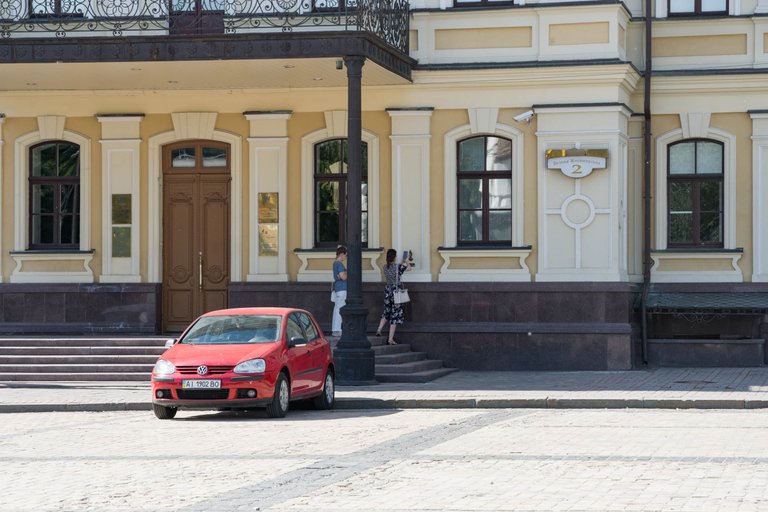
The spot was very popular indeed, people kept coming to take a picture of it or a selfie with it. Of course, I took a picture of Sonia with her new idol.😍
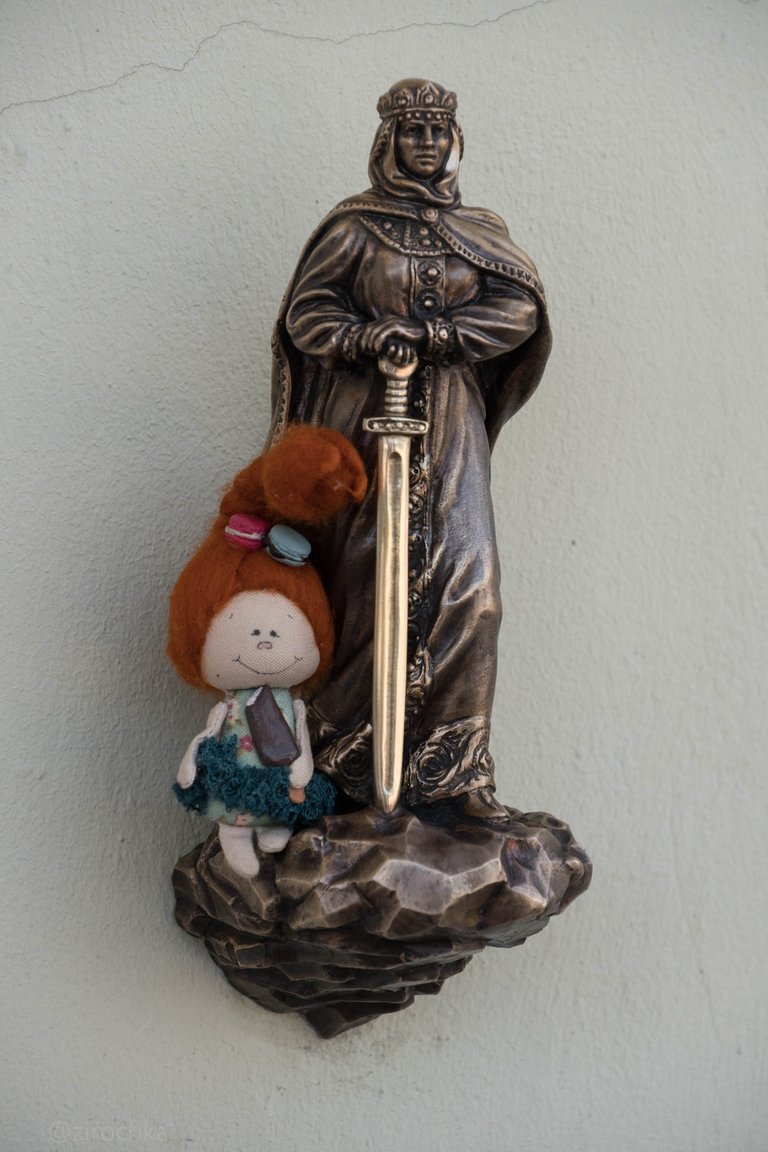 | 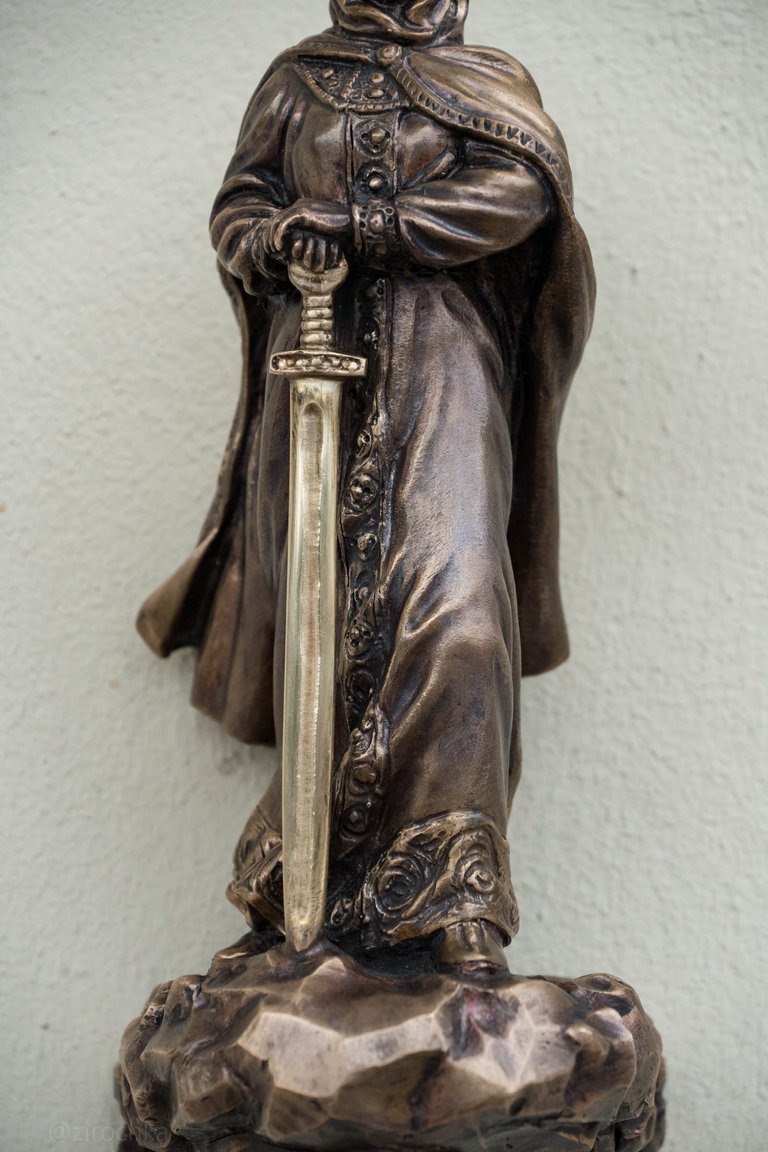 |
|---|---|
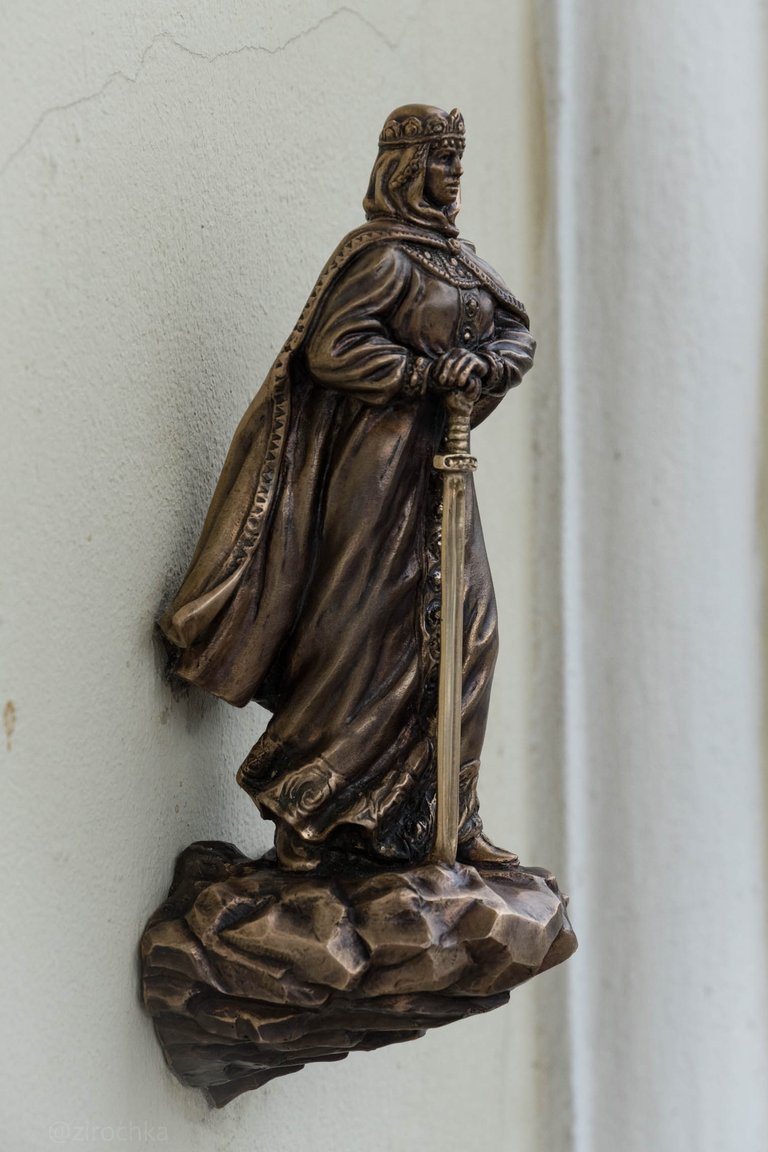 | 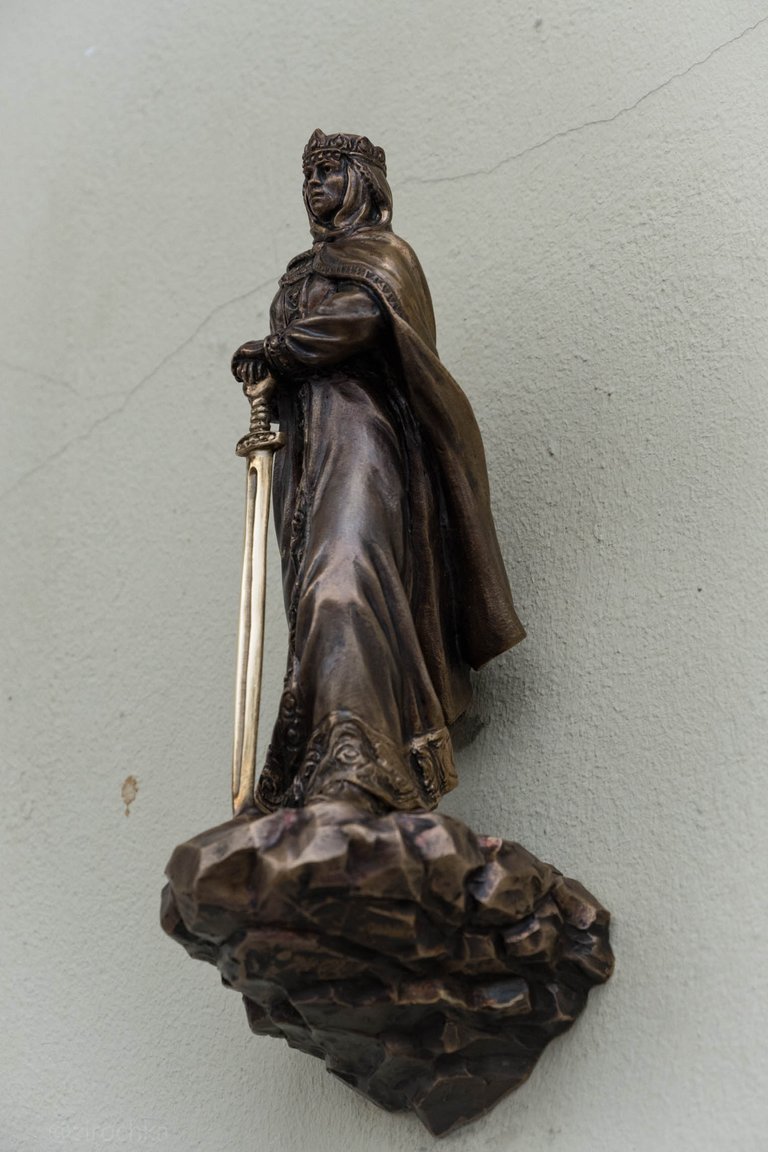 |
At the end, I'd like to quote Yuliya Bevzenko the author of the project:
"Olga has a sword under her cloak — a message for every Ukrainian man and woman, for every friend of ours and especially the enemy."
The end.

The sources of photos from Saint Peter's Cathedral, original monument and some other details are listed below:
If you like the story and want more, this is the link to the all Series of Mini-Sculptures.
Thanks for your time and attention, my dear readers. I wish you a good weekend, and see you in the summer! (it is tomorrow) 😉
Kind regards,
